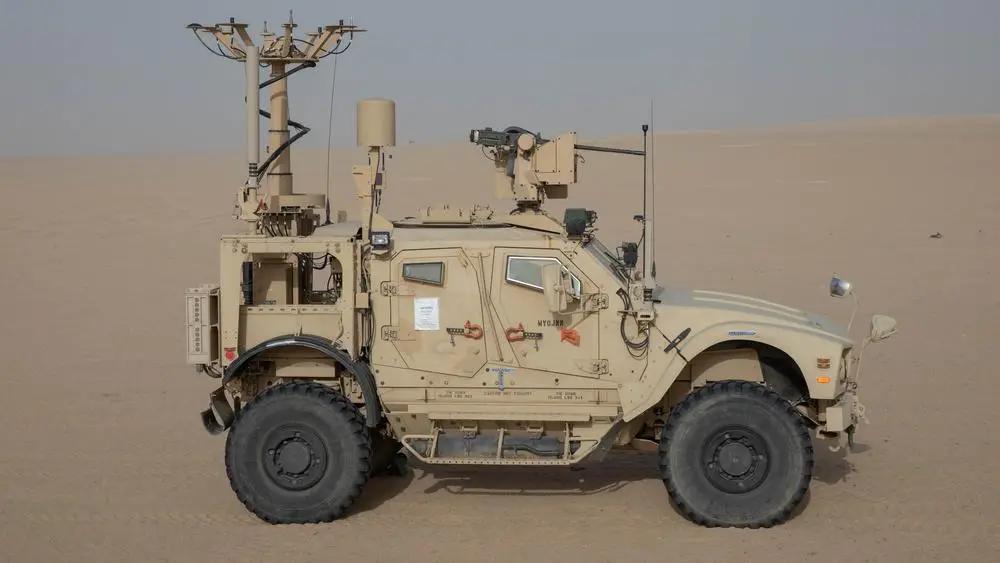U.S. Soldiers with the 1st Stryker Battalion, 4th Infantry Division, conduct Mobile Low, Slow, Small Unmanned Aerial Vehicle Integrated Defense System (M-LIDS) training, Camp Buehring, Kuwait, Jan. 25, 2022. The Soldiers trained on the M-LIDS counter-drone weapon system, which can be mounted on vehicles and is designed to target and disable, or destroy hostile drones or other unmanned aerial vehicles, in support of the Combined Joint Task Force – Operation Inherent Resolve advise, assist, and enable mission. M-LIDS mounts on two mine-resistant ambush-protected all-terrain vehicles (M-ATVs) one with infrared sensors), and the other with machine guns.
The M-LIDS family of systems uses a modular framework with a cutting-edge capability, overlaid on existing programs of record, to create a mechanism to defeat UAS from the smallest systems to Group 3 unmanned aircraft capable of carrying large explosives or sophisticated observation payloads. These aircraft typically weigh more than 55 pounds, but less than 1,320 pounds and operate below 18,000 feet at speeds of slower than 250 knots—like the Shadow and the Integrator. In July 2018, the Army announced a $13 million award to Leonardo DRS to continue engineering and testing the M-LIDS and should be finished by July 2025.

U.S. Army Contracting Command at Redstone Arsenal, Ala., announced a $189.8 million five-year contract Monday to the Leonardo DRS Land Systems segment in St. Louis to build and support the Mobile-Low, Slow, Small Unmanned Aircraft System Integrated Defeat System (M-LIDS). The company has been developing M-LIDS since 2017 to disable small UAVs that pose threats to U.S. military forces. The M-LIDS design uses two military vehicles — one that detects and tracks UAV threats, and the other that shoots them down or jams their control signals. M-LIDS also uses a small UAV.
M-LIDS is mounted on two mine-resistant, ambush-protected all-terrain vehicles (M-ATVs) — one carrying the Leonardo DRS elevated mast-mounted surveillance and battlefield reconnaissance equipment (EO/IR sensors), and the other with a reconfigurable weapon that fires several different kinds of machine guns. The system’s Reconfigurable Integrated-Weapons Platform (RIwP) was developed by Leonardo DRS and Moog Inc. in Elma, N.Y. These systems often include infrared sensors, RF scanners, radar, visible-light cameras, RF jammers, and tracking software.
They also can include a variety of kill capabilities, from guns and rockets to lasers and electronic warfare (EW).
















